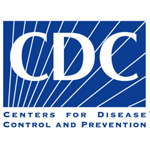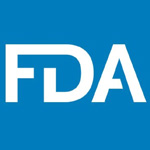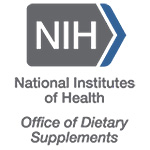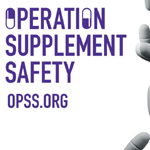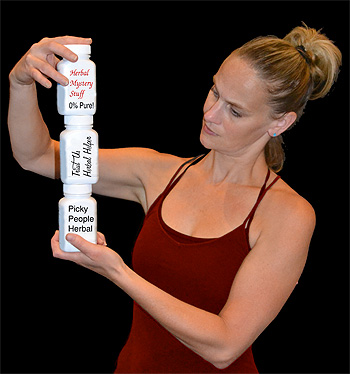Leptin
What is it?
Leptin is an adipose derived protein hormone that helps regulate energy intake and expenditure, including appetite and metabolism.
Does it occur naturally in the body?
Yes, it's produced primarily by the adipocytes of white adipose tissue, but it's also manufactured by your bone marrow, brown adipose tissue, liver, mammary epithelial cells, ovaries, pituitary, placenta, skeletal muscle and the stomach. The amount of leptin in the body is proportional to the amount of fat in the body.
What are the claims?
Do nothing more than take leptin pills or supplements, and you can decrease your appetite and lose weight. Most leptin promoters claim the weight loss happens without a change in diet or exercise habits.
Does it work?
Not the way researchers had originally envisioned. The effects of leptin were first clinically observed on a colony of mice in 1950. The mice ate all the time and became morbidly obese. It took until 1994 before researchers discovered it was the hormone leptin that was causing the problem. After receiving injections of leptin, obese mice dropped their fat and returned to a normal body weight.
That clinical result led to supplement companies manufacturing leptin and promoting it for weight loss. There was just one little problem. Obese people didn't have a deficiency.
The amount of leptin in your body is directly proportional to the amount of fat. As fat cells become enlarged in obesity, they release more leptin. Obese people have plenty of leptin, one of the reasons they're fat is because of leptin RESISTANCE in the brain.
Here's how it works. Since leptin is an appetite suppressant, your brain needs it as a signal that it's full. When an average size person eats a meal, leptin levels continue to climb until your brain eventually says "enough" and you recognize the feeling of fullness. Obese people are resistant to leptin, so they don't get that "full" signal, and they continue to eat.
Unfortunately, the modern diet seems to be a huge contributor to the problem. Simple carbohydrates (like sugar) contain higher levels of leptin than our bodies are designed to handle. If you constantly bombard the brain with carb-rich foods that have excessive levels of leptin, eventually your system will shut down, and you won't recognize when you're full.
That means taking leptin as a supplement isn't the answer. What you need to do is re-sensitize the brain. One of the best ways of doing that is to REDUCE the amount of leptin in the body.
That's part of the reason for the initial success of low-carb diets. By severely reducing the carbohydrates (and the leptin that comes along with them), you can get the brain to start recognizing leptin again and signal when it's full.
As important as lifestyle changes are, there are some nutritional supplements that may be able to lower leptin levels and re-sensitize the brain. Those include melatonin, L-carnitine, conjugated linoleic acid (CLA) and omega-3 fatty acids. However, the research is still in early phase testing, and there's not enough clinical data to suggest taking any of these for that purpose.
What are the dangers?
If you do take leptin supplements, you must avoid taking too much, or you risk de-sensitizing your brain to its effects, and you'll end up feeling even hungrier.
The Bottom Line
Taking leptin supplements may help you maintain a healthy weight, but they don't show clinical benefit for typical obese people trying to lose weight.
Because of the risk of overdosing when you're an average weight and the ineffectiveness for the obese, we can't recommend taking leptin unless prescribed by a doctor.
Links for More Info
| Centers for Disease Control and Prevention http://www.cdc.gov/ |
|
| United States Food and Drug Administration (FDA) http://www.fda.gov/ |
|
| Herbs, Botanicals & Other Products - Extensive Information from the Memorial Sloan-Kettering Cancer Center https://www.mskcc.org/cancer-care/diagnosis-treatment/symptom-management/integrative-medicine/herbs |
|
| National Center for Complementary and Integrative Health - Overviews on Herbal Treatments and Supplements https://www.nccih.nih.gov/health/herbsataglance |
|
| National Institutes of Health http://www.nih.gov/ |
|
| National Institutes of Health - Office of Dietary Supplements https://ods.od.nih.gov/ |
|
| Operation Supplement Safety https://www.opss.org/ |
|
| United States Department of Agriculture http://www.USDA.gov/ |
|
| WebMD - Helping you make better decisions for life. http://www.webmd.com/ |
|
We at WeBeFit DO NOT recommend ANY supplements to ANY of our clients. ONLY a licensed Nutritionist or Medical Doctor can make those recommendations based on your individual needs.
This is being provided for INFORMATIONAL and EDUCATIONAL purposes only.
CAUTION: These supplements have not been evaluated by the Food and Drug Administration (FDA) for safety, effectiveness or purity. There may be unknown risks associated with taking any supplements. There are no regulated manufacturing standards for companies that make supplements. There have been instances where herbal or health supplements have been sold that were contaminated with toxic substances. If you should choose to purchase herbal or health supplements, please only purchase them from a reliable source to minimize the risk of contamination.
If you should decide to use ANY supplement, ALWAYS consult your doctor or Nutritionist first.
8/1/2011
